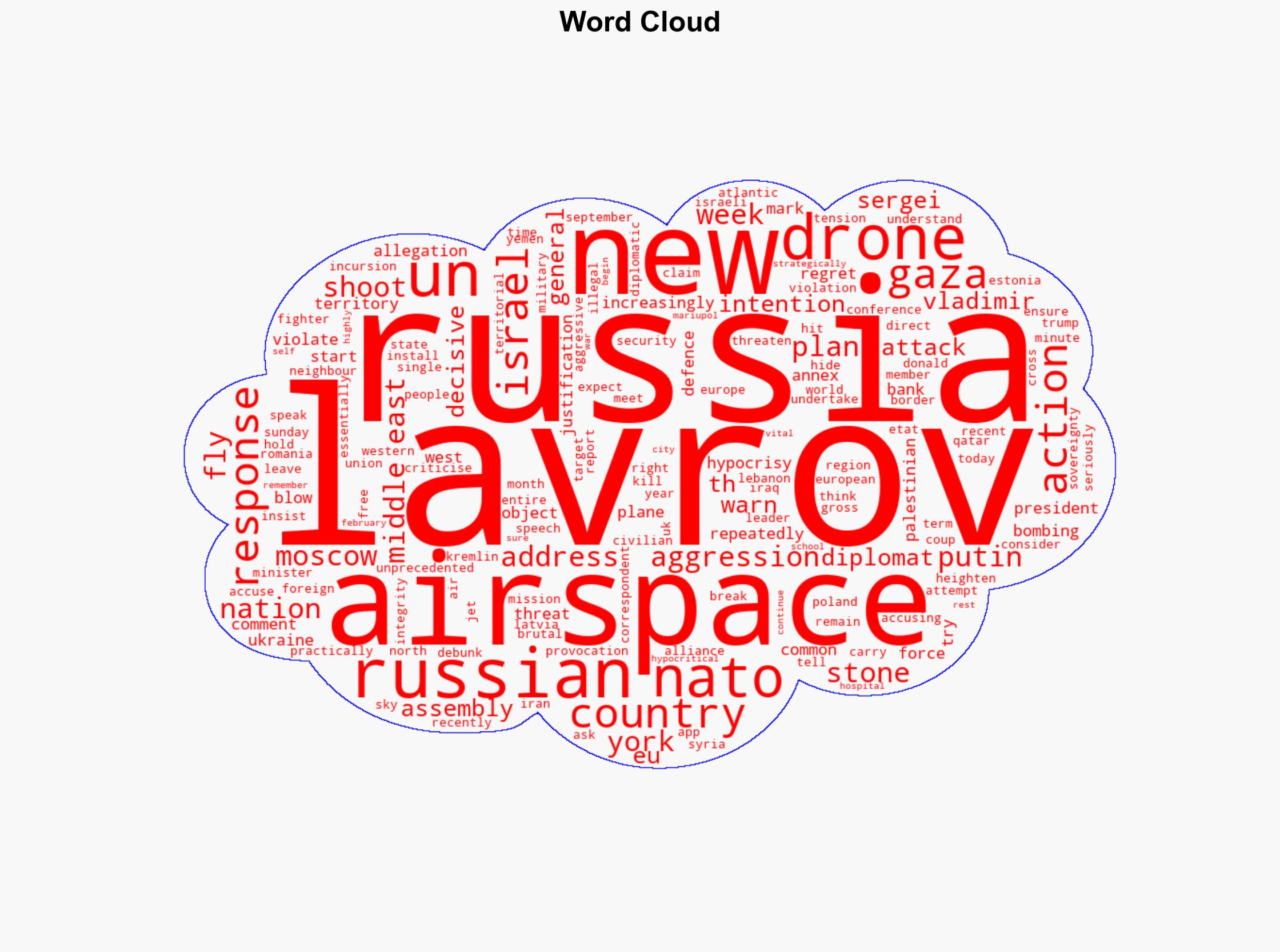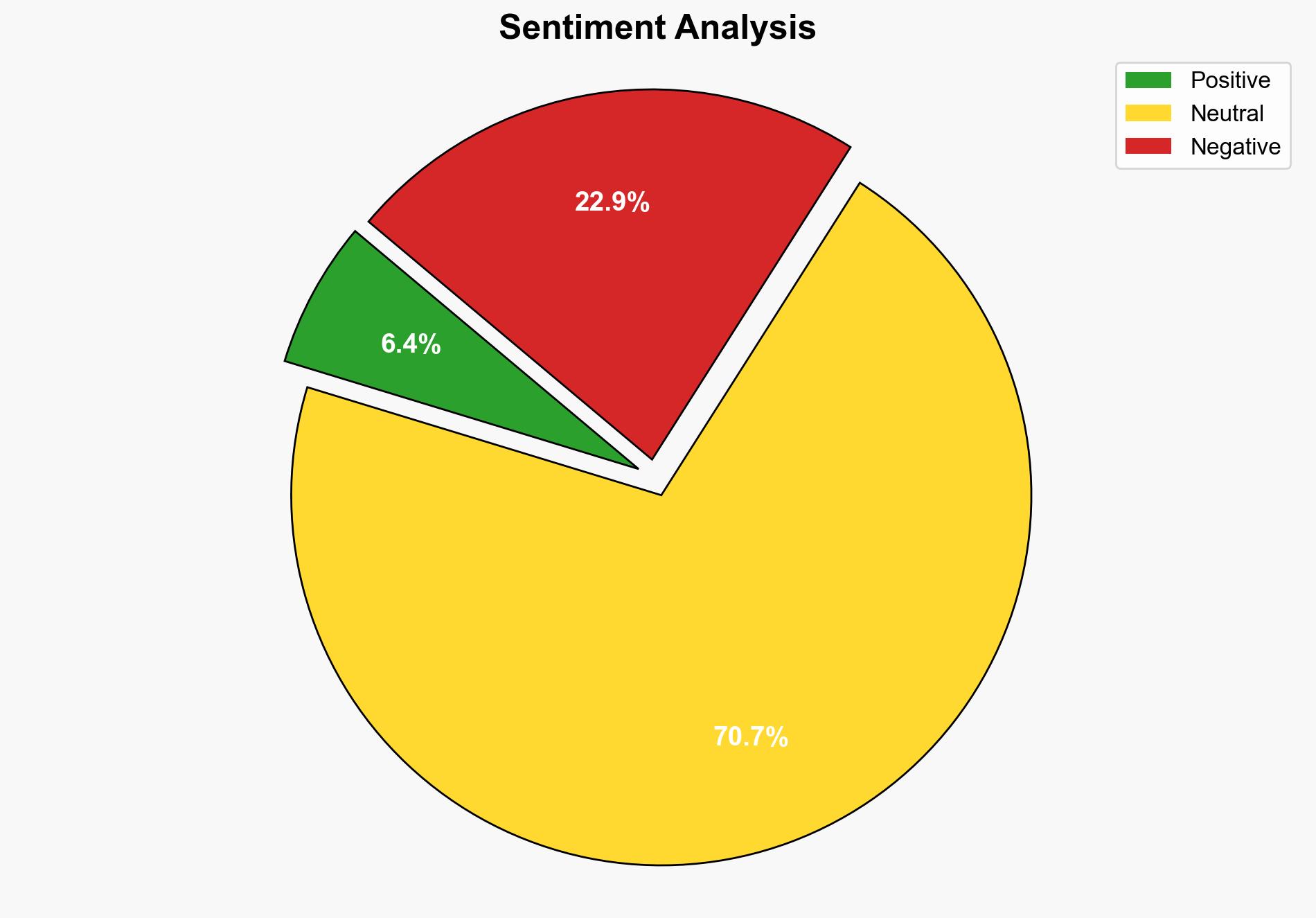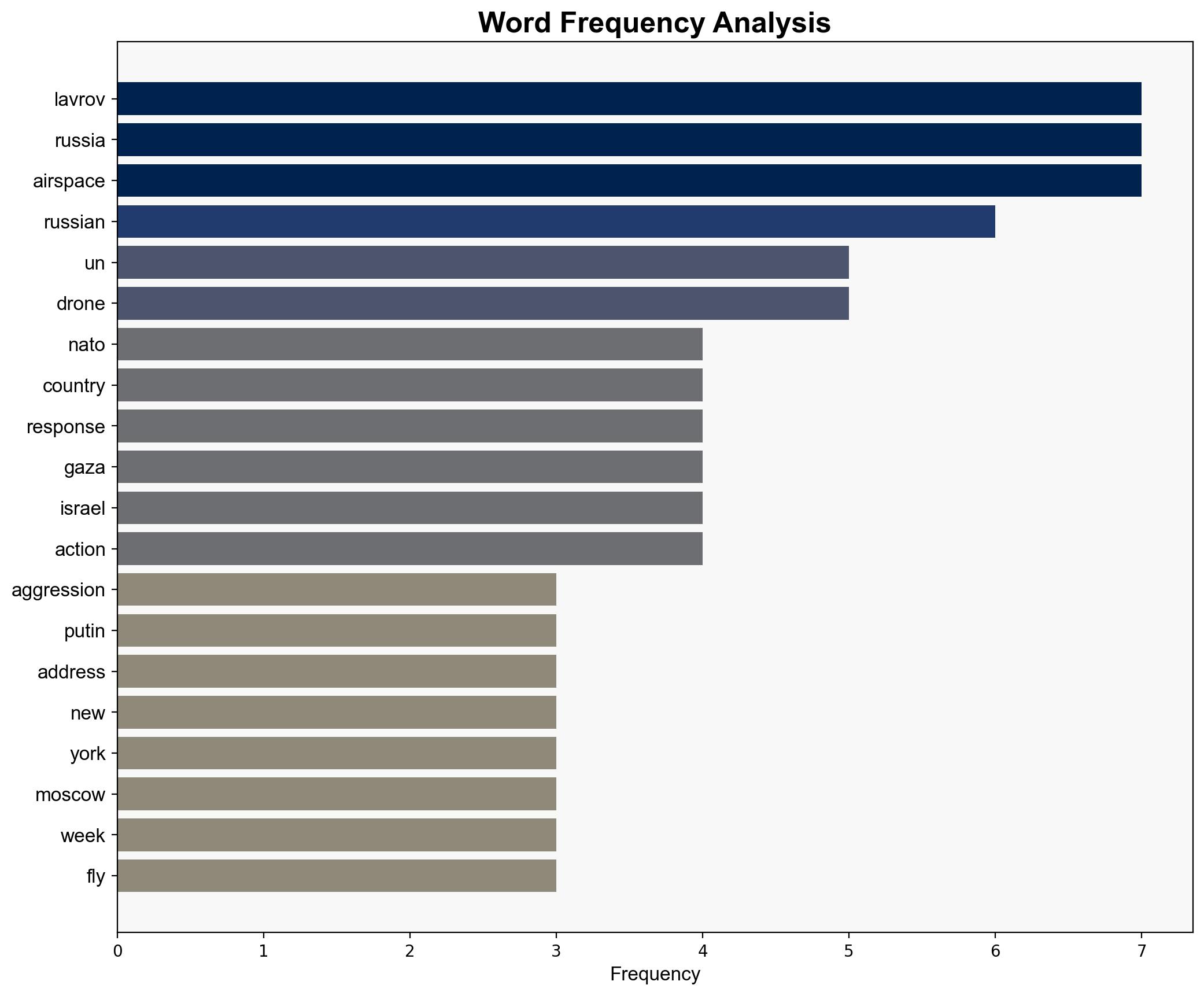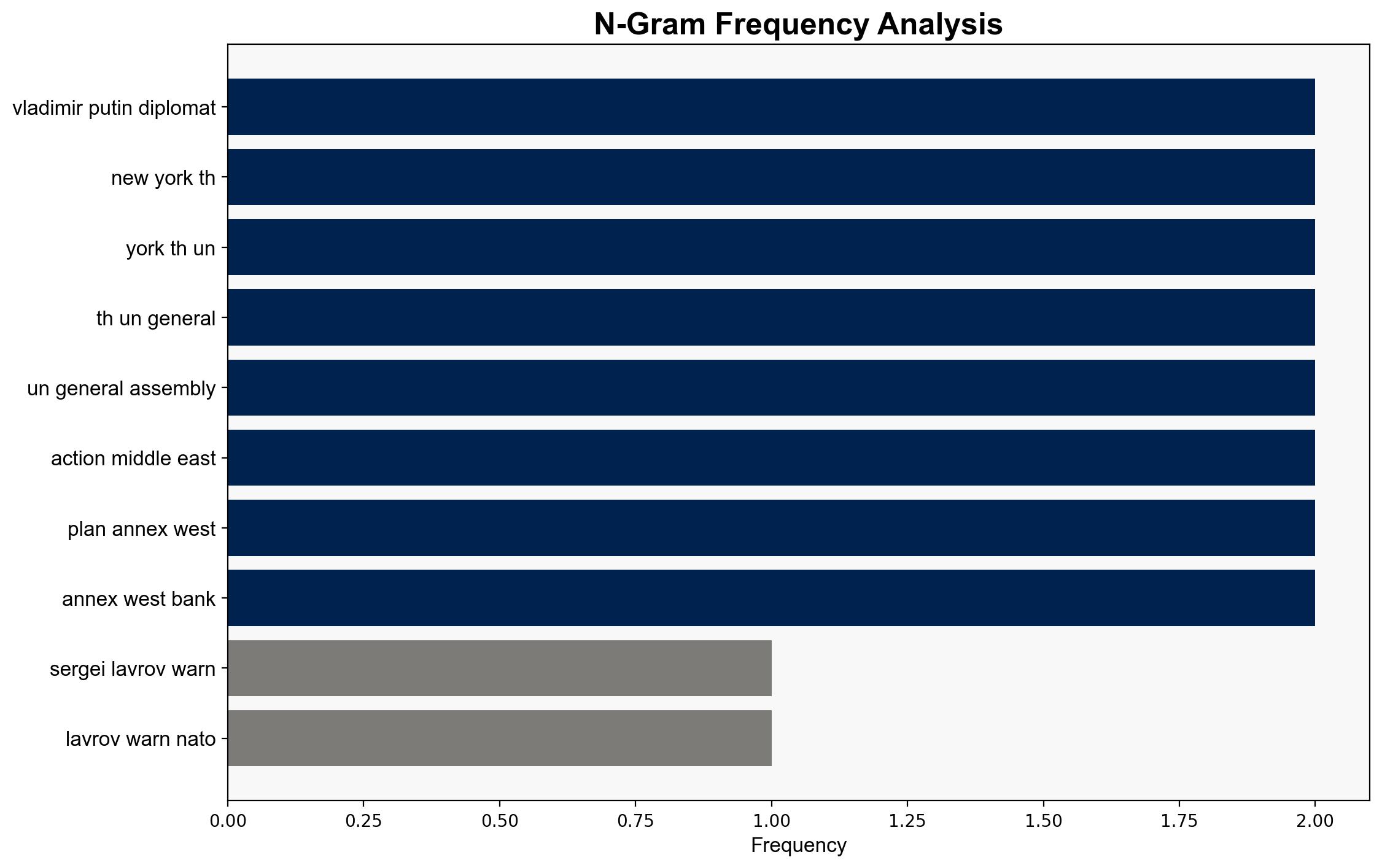Sergei Lavrov warns NATO and EU countries over ‘aggression’ towards Russia – Sky.com
Published on: 2025-09-27
Intelligence Report: Sergei Lavrov warns NATO and EU countries over ‘aggression’ towards Russia – Sky.com
1. BLUF (Bottom Line Up Front)
The most supported hypothesis is that Russia’s warnings are primarily a strategic maneuver to deter NATO and EU actions perceived as hostile, rather than a prelude to imminent military aggression. Confidence level: Moderate. It is recommended to enhance diplomatic engagement and reinforce defensive postures in Eastern Europe to mitigate misinterpretations and potential escalations.
2. Competing Hypotheses
Hypothesis 1: Russia’s warnings are a strategic deterrent aimed at dissuading NATO and EU from further military build-up and actions near its borders, leveraging rhetoric to maintain a strategic buffer zone.
Hypothesis 2: Russia is preparing for potential military action and is using aggressive rhetoric as a pretext to justify future incursions or escalations, testing NATO’s response mechanisms.
Using ACH 2.0, Hypothesis 1 is better supported due to the historical pattern of Russian diplomatic posturing without immediate follow-through on military threats, as well as the lack of concrete evidence of imminent military mobilization.
3. Key Assumptions and Red Flags
– Assumption for Hypothesis 1: Russia prioritizes strategic stability and is unlikely to initiate large-scale conflict without provocation.
– Assumption for Hypothesis 2: Russia is willing to escalate militarily despite potential international backlash.
– Red Flags: Increased Russian military movements or exercises near NATO borders, shifts in diplomatic tone, or sudden changes in troop deployments.
– Blind Spots: Potential covert operations or cyber activities not publicly visible that could indicate a shift in strategy.
4. Implications and Strategic Risks
– Potential for misinterpretation of military exercises as aggressive posturing, leading to unintended escalation.
– Economic sanctions or diplomatic isolation could further strain Russia-West relations, impacting global markets.
– Cyber threats could increase as a non-conventional means of exerting pressure without direct military engagement.
– Psychological impact on Eastern European nations, increasing reliance on NATO for security assurances.
5. Recommendations and Outlook
- Enhance intelligence-sharing mechanisms within NATO to ensure timely and accurate assessments of Russian activities.
- Engage in diplomatic dialogue with Russia to clarify intentions and reduce the risk of miscalculation.
- Scenario-based projections:
- Best Case: De-escalation through diplomatic engagement and mutual security assurances.
- Worst Case: Military confrontation due to misinterpretation of defensive measures as aggression.
- Most Likely: Continued rhetorical posturing without direct military conflict, with sporadic cyber and diplomatic tensions.
6. Key Individuals and Entities
– Sergei Lavrov
– Vladimir Putin
– Donald Trump
7. Thematic Tags
national security threats, cybersecurity, counter-terrorism, regional focus




